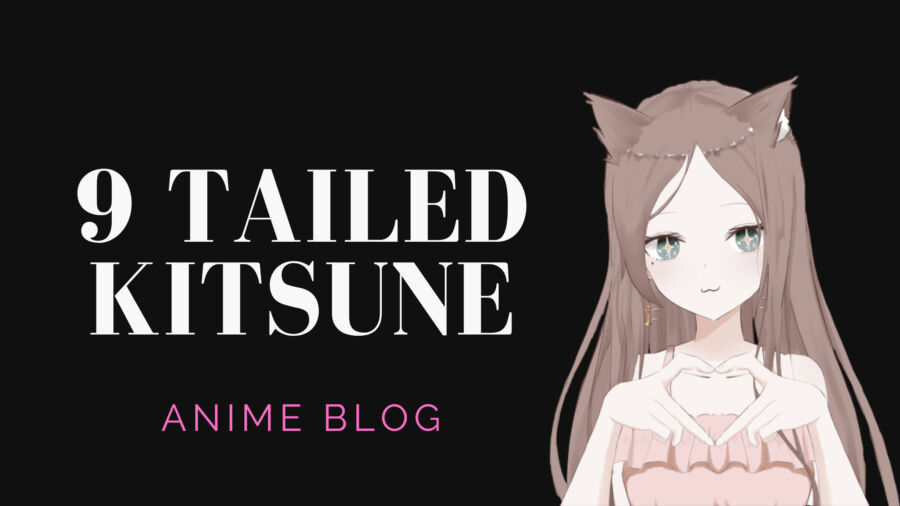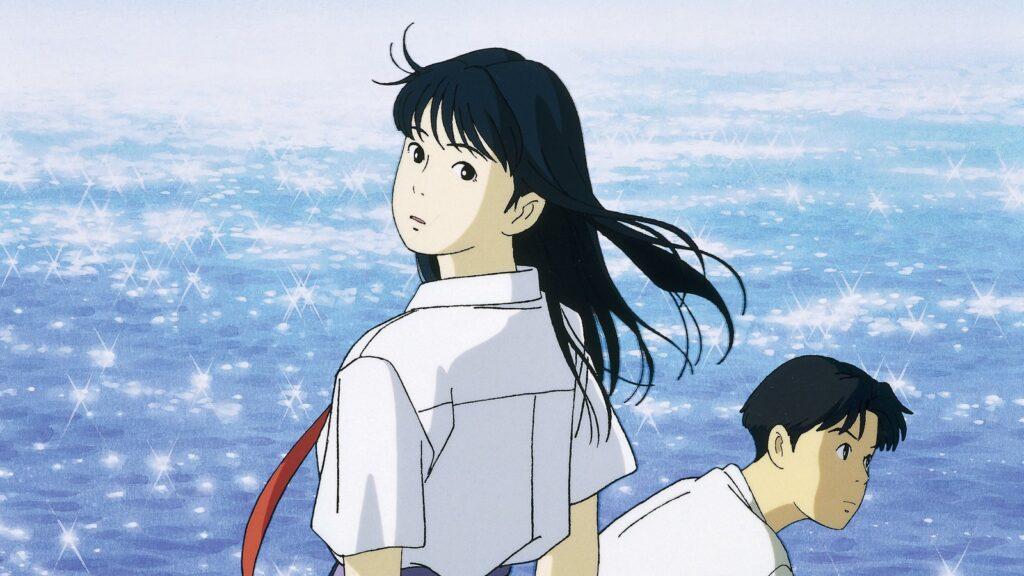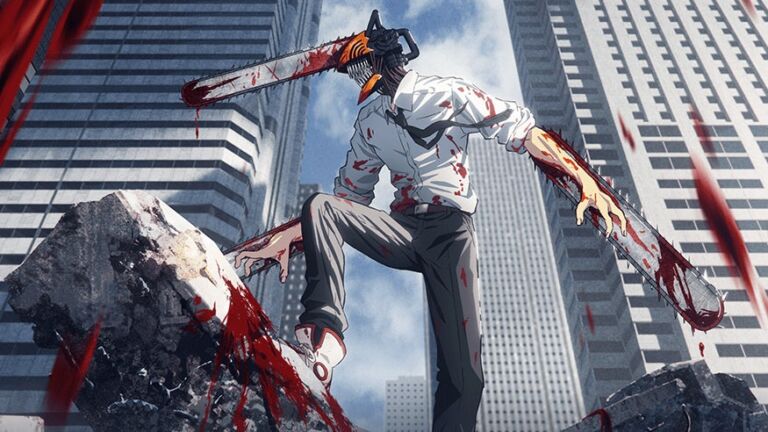Guest post by Christian Flores, founder of The Anime Historian.

An unfinished film.
Ocean Waves has the childish charm of studio Ghibli but also the mature storytelling of Tomomi Mochizuki and with it comes, the beautiful visuals, the wonderful art style, and the usual notoriety that is embedded in every Studio Ghibli film but the movie feels, unfinished, it leaves a colorful trail of a promising narrative but eventually leads to nowhere. It’s a wonderful film with no stabilizing core.
The previous success of My Neighbor Totoro (both released in 1988) and Kiki’s Delivery Service in 1989 became the face of 80’s anime. But the childhood innocence and the multi-referential subtlety of a deeper, more mature narrative worked brilliantly ever since Castle in the Sky, but will they ever move on? Will they ever work on something that tackles the problems of life straight on?
This is what Ocean Waves is all about. The story of a tragic infatuation for love that ruined friendship, and the movie would’ve been in the halls of Ghibli classics if it was about that. It feels like the movie is very restrained.
It’s a slow, drama that tells the tale of a love triangle between Rikako, Taku, and Yutaka. There’s a school trip to Hawaii that led to an important trip to Tokyo where Rikako tries to find her father and eventually, Taku decides to tag along, something that will be of bigger relevance later on in the plot. There’s a scene where out of pure hatred and contempt for Rikako after her being so ungrateful to him, he decides to slap her in the school hallway which is one of, if not, the best things about the entire movie. So unexpected and ever so satisfying.
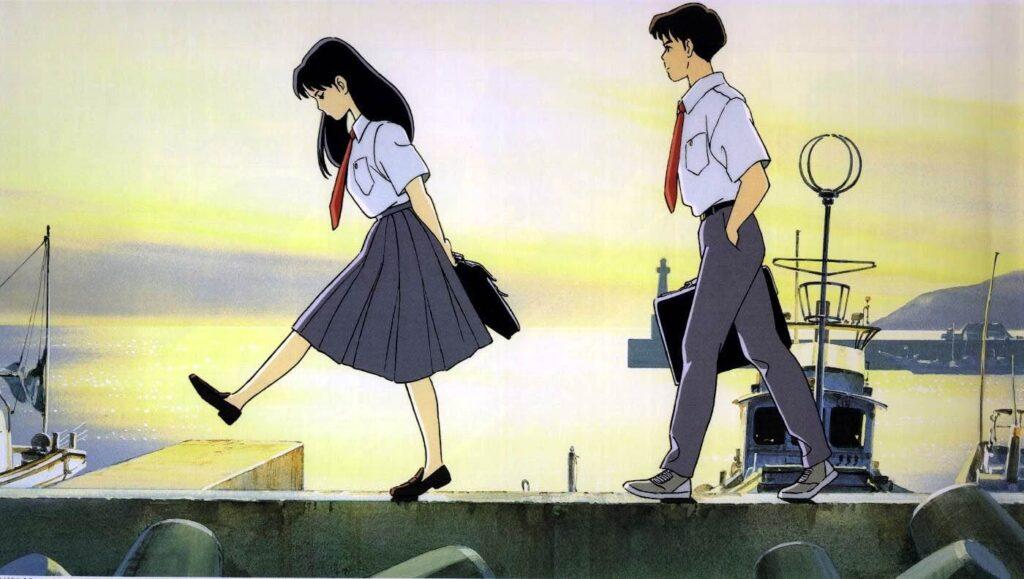
It is dancing on the border of being made for kids, and for young adults which is a shame because Ocean Waves is a lot of things but if that is the case, then you might as well be nothing at all. It tries to become both and in the end, it fails at being either. This might be because it was a TV movie, which might be the reason for the awfully short run time compared to other Ghibli films before it.
After watching the film, one can make an argument that if it wasn’t a Studio Ghibli production then it would’ve been gone in the endless annals of bad anime movies and although there is some truth to that statement, Ocean Waves isn’t necessarily a bad movie, it’s just very… shallow.
It’s a story of friendship, maturity, and the idealism of your romantic interest but it never settles on one thing. The narrative itself strays far from the previous focuses of Ghibli films which have been about fantasy, folklore, or World War 2-centered storylines like The Grave Of The Fireflies instead it takes you to Tokyo and introduces you to the imperfections of a perfect girl—Rikako Muto.
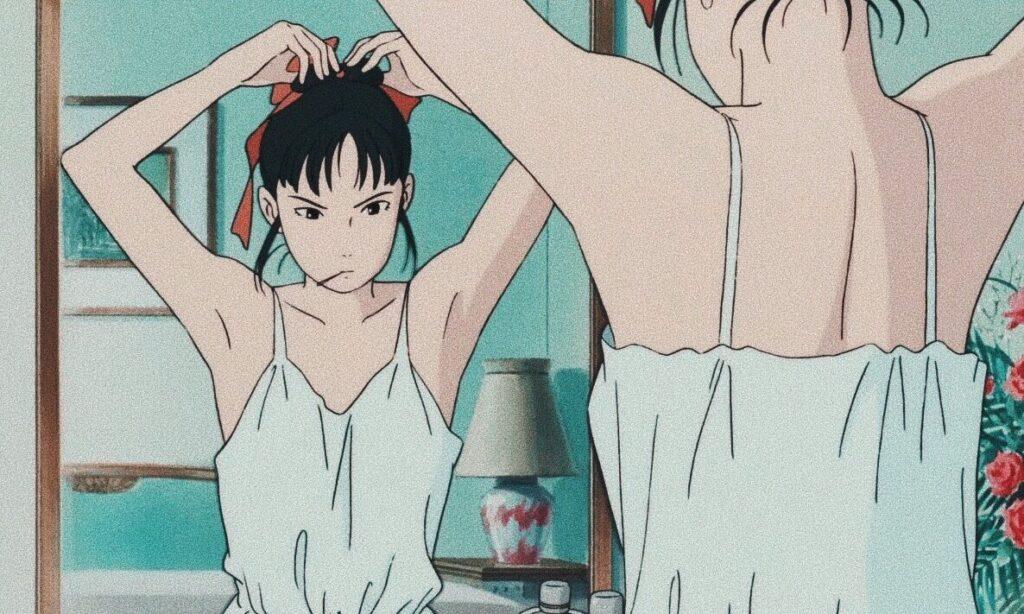
The characters are a very interesting bunch, they are in constant conflicts about themselves with problems that other people have brought upon them. The divorce of Rikako’s parents, and the ruined friendship of Yutaka and Taku because of a misunderstanding. The growth of the relationship between the characters is something that Ghibli has never explicitly shown before this movie and it’s interesting for them to leap out of the usual.
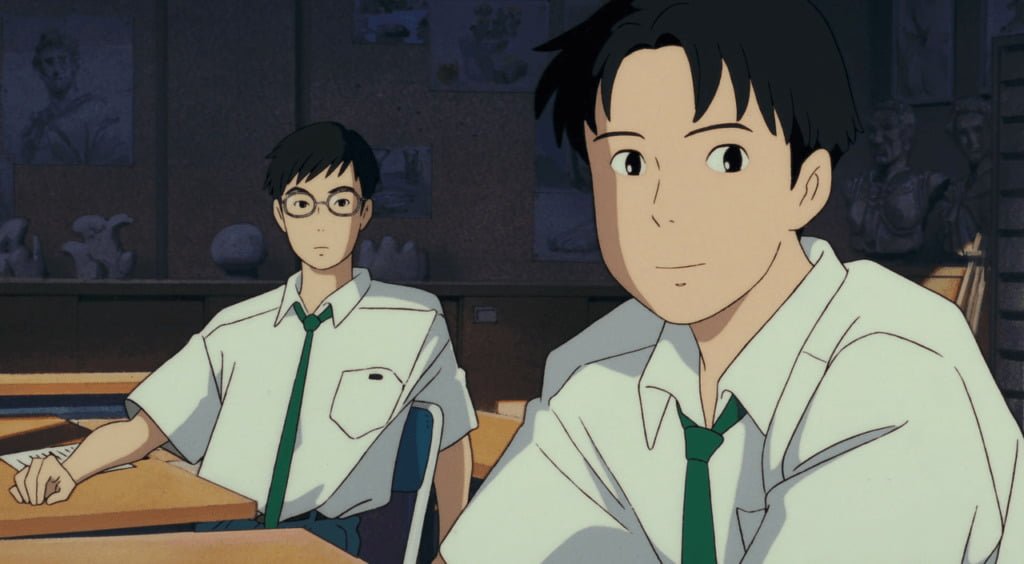
This leap can also be seen in the art style, with the subsequent white borders around the frame that signifies a memory, or telling the inner feelings of the characters not through some elaborate animation sequence like the flying school bus scene in My Neighbor Totoro and the ending sequence of Kiki’s Delivery Service where she’s finally able to fly. There is no grand animation sequence in this movie. It’s all very static, often having entire scenes in one frame.

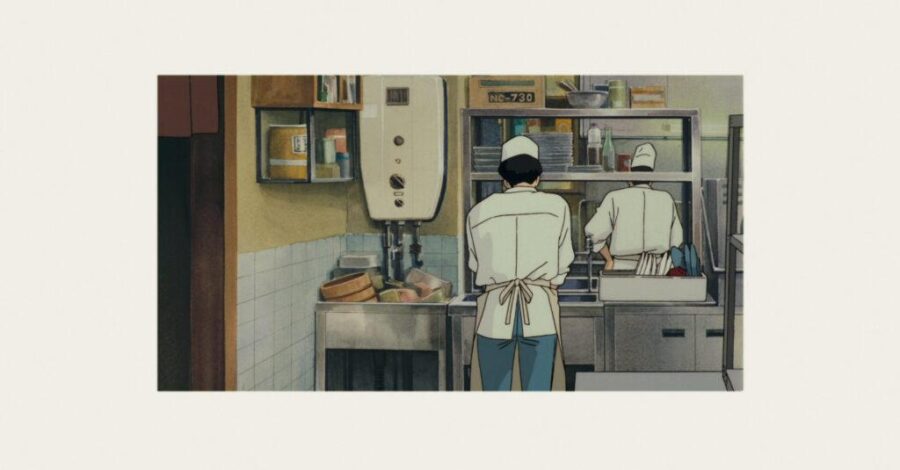


Although yes, this film has its very beautiful moments like the Tokyo nightlights and the casual stroll on the oceans as well as the final beerhouse sequence where the class of the old got together, where each table and interaction has a story of its own and that in itself is amazing but this movie in its entirety tells its stories not in the way of grandeur animation but through framing.



In the early moments of the film where Taku first talked to Rikako outside of the school gate we see that the frame only has Rikako’s face in it even if Yutaka is also present in the scene, it’s as if he was never really there. Like a fly on the wall, a person of insignificance. This one frame told so much about the story compared to any line of dialogue. There are no over-the-top animation sequences that will sink into your very soul, but it is there. The beauty of Ocean Waves is in the details, something that rewards those who have a keen eye.
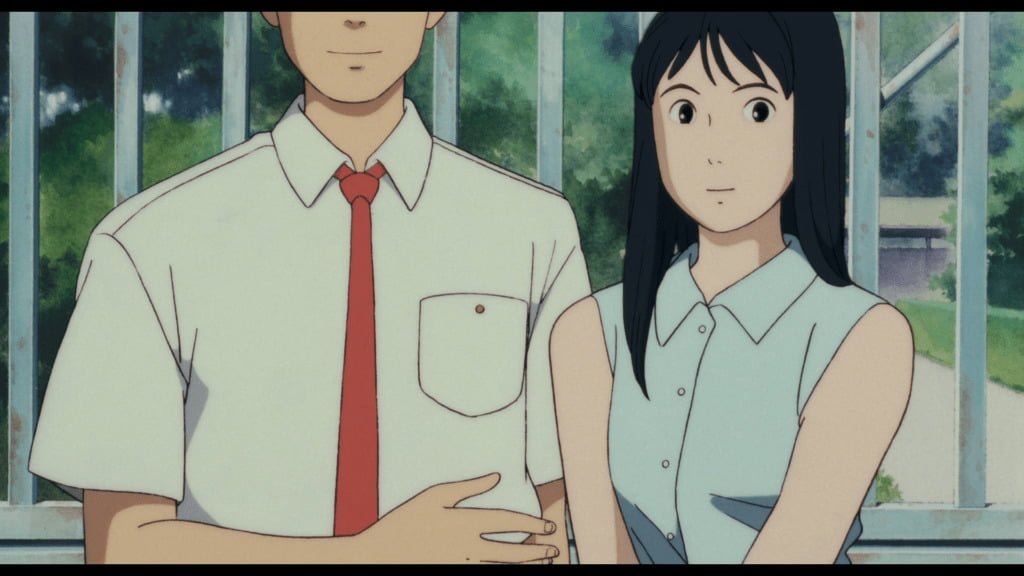
The visual storytelling is brilliant and it has been for the rest of the film. It’s refreshing to see Ghibli take on a new approach to their style and this style has been present in modern works as well like the Monogatari series where it usually pans out with a colored border with some text in it to give more focus on a specific line of dialogue, something that is very prevalent throughout the movie as it emphasizes the memory part of the story.
But where this film has made up in the aspects of visual storytelling and it has lacked in the area of its story. As they say, if you make a good movie with good visuals but a soulless story then why bother making a movie at all? This is especially true in the case of Ocean Waves.
Throughout the film, I’ve always been anxious about where the story could go since it has a very promising concept and provides a lot of room for character development but there’s only so much you can do with a one-and-a-half-hour screen time. This anxiety grew even further towards the end of the film when the film has run out of places to go and decides to go headfirst into a wall.
In the ending where they have a reunion with everyone to celebrate them growing up. It may be that this scene is supposed to be nostalgic of the good old days of wonderful high school life, but one asks how can that be nostalgic if nothing strikes of any importance at all? All that we know about their high school classmates is from a 5-minute sequence at the back of the school where the girls gang up on Rikako?
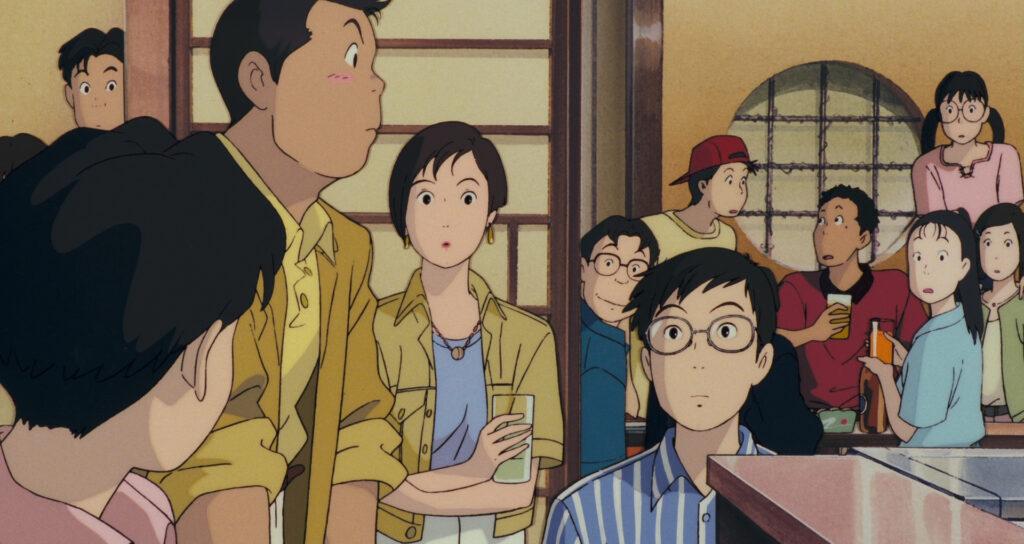
One feels like if this movie only has another 30 minutes of screentime then the film would’ve been much better. If only it ran for longer then it wouldn’t have felt unfinished, with a clear coherence in the end. It runs up a hill and falls on a cliff, which is what it feels like.
The Tokyo part is a bit of a hard thing to sit through as I find my finger twitching in search of an unavailable quit button as the story lingers on and on, and on, for the better part of the film and its only big significance is to give Taku and Yutaka to fight. Sure, it served as a catalyst for the romantic interest that Taku has had for Rikako, something that he—and myself—didn’t know until the ending but it happened so fast that it flew over my head.




The movie feels shallow, so much that even in the part where we get to know Rikako’s true personality and the reasons behind it, we don’t even care, because what is the significance? Sure she is bitchy and as a result, she got slapped by Taku—which to be honest is one of the most satisfying scenes in a Ghibli film that I have ever seen—and confronted by the class girls in the back of the school during the festival but what is the point of this? A build-up to a single line of dialogue in the end where Yumi talks about how much she’s changed because of her high school experience? There is no payoff in the story and even in the end where we get to see Rikako as this grown-up lady in the train station. It offers no help in wrapping things up.
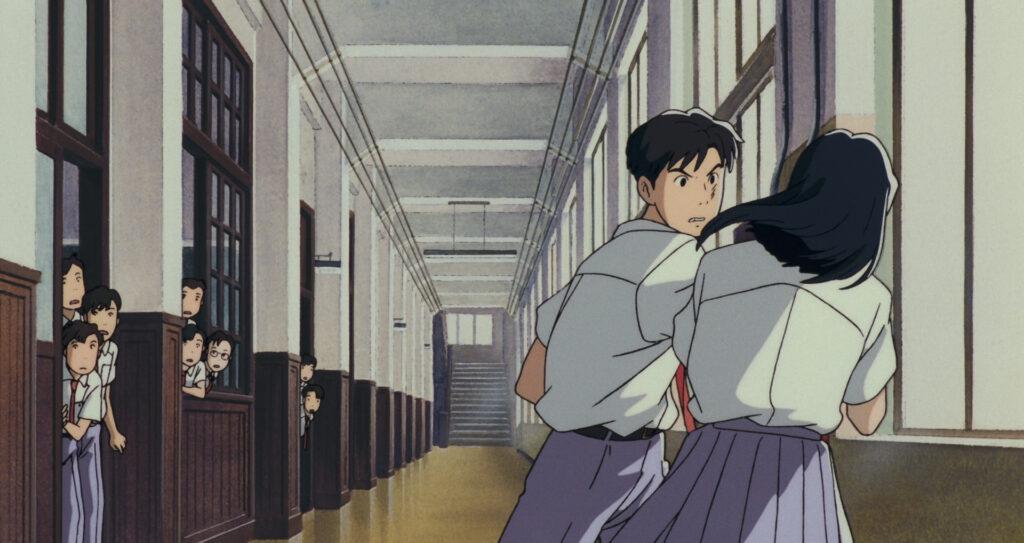
It’s a mystery to me how Taku fell in love with Rikako in the first place, was it because she was hard to get? Was it because she was rich? Their lackluster trip to Tokyo? She is the very definition of a “bitch”. She is ungrateful for the lengths that Taku went to during their trip and she turned down Yutaka’s confession in a way that permanently scarred his long friendship with Taku. Perhaps the reason is him being a deep masochist? Either way, it is probably a reason that surpasses all logic.
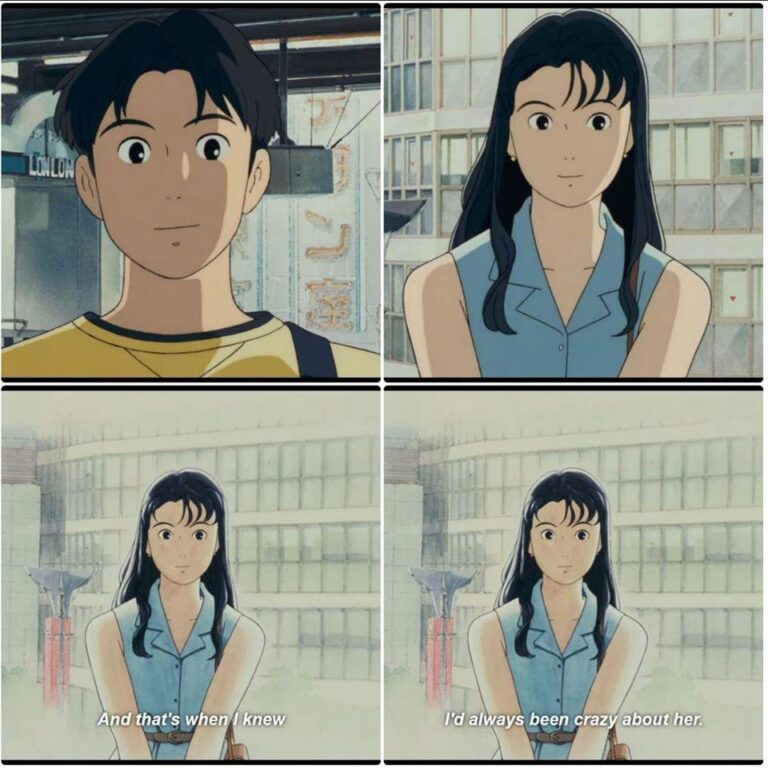
There’s a looming sense of dread in the end, as you finish the film and ponder over what the film is about. What is its message? Well, one can argue that it’s about the uncertainty of growing and the consequences of a pitch-perfect fantasy about a person, something that speaks volumes about current K-pop stans and celebrity culture and that makes complete sense, on the other hand, it might mean completely different to another person, but in the end, it will always feel, unfinished. The first draft of a better movie.
But this dread, and disappointment became one of the biggest inspirations for the best film of the 2010s, Makoto Shinkai’s legendary Your Name. It was a surprising realization for me, something that made me appreciate this film a bit more.
It was the same train scene, in the end, the same concept of life leading you into unexpected situations, and the concept of a half-remembered dream of an uncertain feeling that you can never quite describe until you’ve felt it again. The concept of fate.
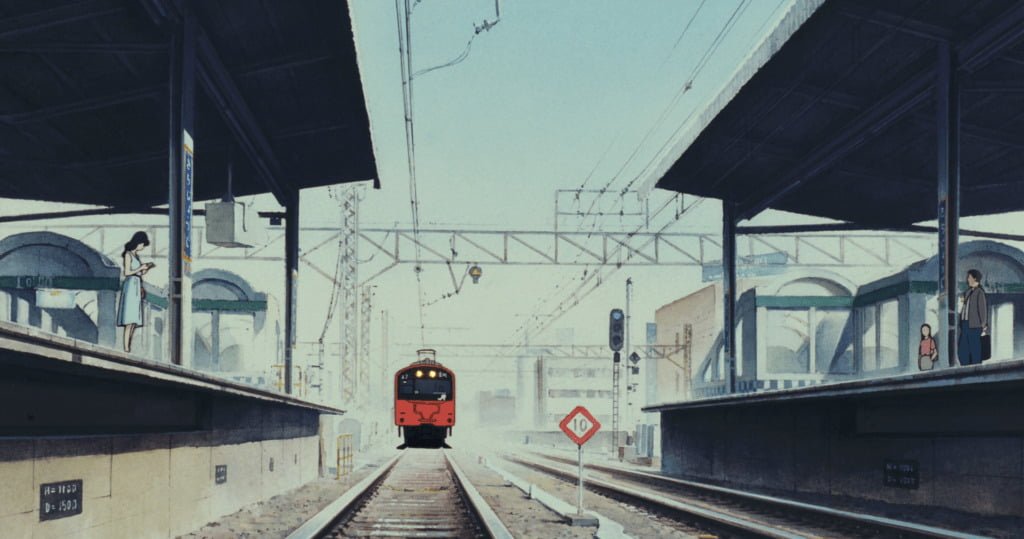
On a deeper look, I can say that the entire movie of Kimi no na wa itself is a big love letter to Ghibli. The meteors are the same color and function as the one like those of Howl’s Moving Castle, the narrative style of mixing folklore and the modern world like that of Spirited Away, and the imperfect perfection of the ending of Ocean Waves.
Ocean Waves might never be the film that it was supposed to be but it gave way to something bigger than itself. I can proudly say that without Ocean Waves then we would’ve never gotten one of the best films of the 21st century.
Conclusion
That being said although Ocean Waves isn’t a fantastic film, it’s never unbearably dull and there are some things to explore in the aspects of its visual storytelling but even with its glaring flaws, it’s a film worth watching as its part of the story of a company that eventually changed anime forever.
